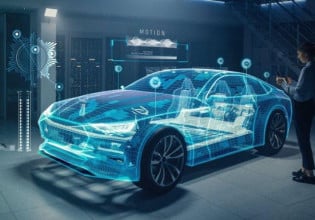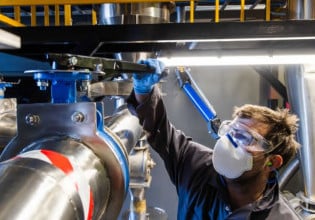Underwriters Laboratories, Inc. (UL) has published updates to two key personal e-transportation electrical system safety standards, UL 2272 and UL 2849, and has released a new electrical system safety standard, UL 3030, to support the global rapid transformation of personal e-Transportation technologies. Personal e-Transportation systems including devices such as hoverboards, electrically pedal assisted bicycles (pedelecs), e-motorbikes, and e-scooters are all emerging uses of lithium-ion battery technologies.
The increasing demands put on the electrical systems of e-Transportation systems present safety challenges that must be proactively addressed. Similarly, the exponential increase in the use of unmanned aerial vehicles (UAVs) - or drones - to fulfill commercial or tactical objectives continues to rely on safe battery and electrical system technologies for proper operation.
"Personal e-Transportation products are powered by an electrical system that includes lithium-ion batteries," said Francisco Martinez , UL's director of Energy Systems and e-Mobility. "New and updated electric shock and fire hazard safety standards establish the baseline for lithium-ion batteries within the electrical system enabling a common expectation of safer use of these devices. In line with our mission, UL is working to enable a future where batteries help our society get from one place to another in a more safe way."
Earlier this year, the Consumer Product Safety Commission (CPSC) urged manufacturers, importers and retailers of self-balancing scooters (hoverboards) to make certain the self-balancing scooters they "import, manufacture, distribute or sell in the United States comply with currently applicable voluntary safety standards, including all referenced standards and requirements contained in UL 2272."
In addition to its existing compliance guidance, as part of its Fiscal Year 2017 Operating Plan, CPSC will work to address hazards associated with devices powered by high energy density batteries (lithium-ion) and "system safety features that ensure high energy density batteries, battery packs, safety circuits, end products and chargers all work together to achieve safe operation for the intended application."
Updates to UL 2272 and UL 2849 reflect expanding scope and address new technologies, Electrical Systems of Personal e-Mobility Devices – ANSI/CAN/UL 2272 1st Edition. The scope of UL 2272 has expanded. The UL Standard Technical Panel (STP) of UL 2272 voted to publish the 1st edition on 11/21/2016 to extend the scope to cover all types of personal e-Mobility devices (single rider; non-roadworthy; typically stand when operating; does not have pedals) as well as other personal e-mobility devices.
Significant updates include: Support for an updated list of products for personal e-mobility, intended for a single rider, with a rechargeable electric drivetrain that balances and propels the rider and may be provided with a handle for grasping while riding. The device may or may not be self-balancing. The name of the Standard is updated from "Electrical Systems of Self-Balancing Scooters" to "Electrical Systems of Personal e-Mobility Devices."
UL 2272 achieved bi-national standard accreditation, accredited as a national standard for U.S. by ANSI and for Canada by SCC. Evaluating and certifying to the single standard ensures the national electrical system safety requirements of both countries are met.
Electric Bicycles, Electrically Power Assisted Cycles (EPAC Bicycles), Electric Scooters, and Electric Motorcycles – UL 2849 3rd Edition. The updated requirements of UL 2849 – 3rd edition now address the most recent critical safety issues to support safe use of e-bikes (single rider, but may be able to accommodate passenger; typically sit to operate; may have pedals; typically considered over-the-road) and minimize risks from battery fires or explosions and shock hazards.
Significant updates include: UL 2849 covers electrical systems of pedelec (pedal assisted electric) cycles, and over-the-road use e-motorbikes and e-scooters. The standard addresses the risk of electric shock during charging over the life of the product and potential electrocution hazards.
New UL 3030, Standard for Unmanned Aerial Vehicles, supports safer electrical systems for commercial applications, UAVs, or drones, have been growing in relevance in a variety of industries. UL 3030 addresses requirements for the electrical system of UAVs for commercial applications (agricultural, scientific, research, government, local police, search and rescue, video for film industry or news broadcasts and flight related to business for roof inspections). UAVs addressed by UL 3030 are intended to be operated by trained pilots. Aspects such as airworthiness, efficacy of controls and similar topics are out of scope, but must be addressed by regulations, user programs and/or other standards.






